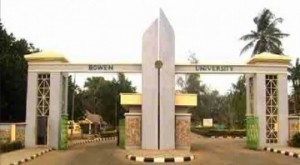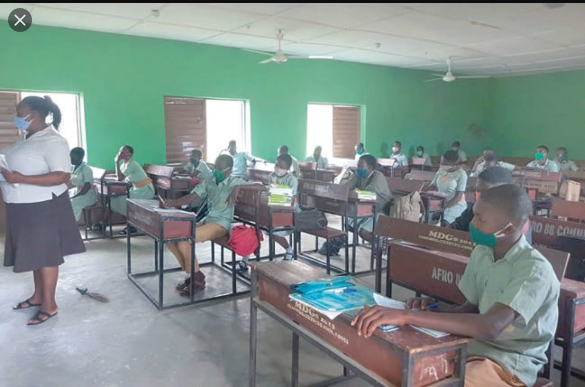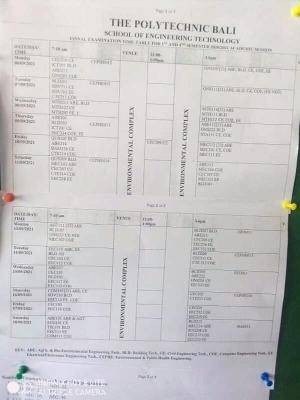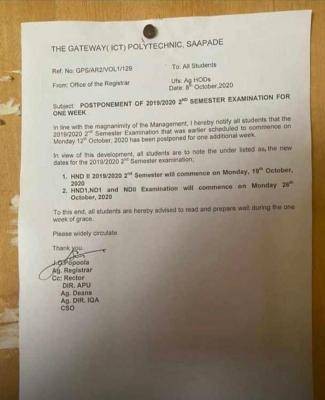
In 1999, when private universities were licensed in Nigeria, many had lost hope in government-owned universities. This was as a result of frequent strikes by university workers, poor facilities, campus cultism and a wave of corruption, where bribing for marks had become commonplace. Consequently, academic programmes that were meant to run for four years dragged on for six or seven years.
Parents and other stakeholders saw the advent of private universities as not just an option, but a worthwhile investment, despite the relative huge costs. The private universities came with many advantages that included uninterrupted academic calendar, absence of workers’ strikes and a firm control of campus activities that eliminated campus cults and put a tab on immoral conduct.
But this perception of private universities was recently challenged, when some students of one of the older private universities, Bowen University, Iwo in Osun State, resorted to violence to protest conditions on campus. The protest, according to the university authorities, resulted in damage to private and public property worth N50m.
Our corespondent learnt that the uprising by students was as a result of pent-up anger over some recent developments on campus, which were introduced upon the arrival of the new Vice Chancellor, Prof. Matthews Ojo, in September last year.
A 400-level student, who pleaded anonymity, told our correspondent that the students were greeted with a new instruction not to use disposable food packs, which had been the culture.
“It all began with him cancelling food packs. He told us that we should get the kind of stainless food flasks that secondary school students use. His reason was it was generating too much waste and so we should economize. When he saw that people didn’t have the flasks with them in school, he allowed plastic plates. All the cafeterias now sell them at N50. But it makes no sense whatsoever, because some would buy the plates and throw them away after eating. Why would anyone want to wash and keep it anyway?” she said.
She said another new rule was introduced shortly afterwards, which stipulated strict times for each meal of the day, which she said the students found ‘incredible.’
“Nicknamed the “break-time rule, breakfast is from 7am to 9am. After 9am, you can’t get food because the cafeteria will be locked up, and courtesy officers will be on guard. You can’t even sit down in the cafeterias. If they catch one there, they’ll write down one’s name and one will face the Student Disciplinary Committee, which would mean risking rustication,” she said.
She added that on the morning of the protest, the school management had released a list of names of students who would face the SDC for sitting in cafeterias.
She continued, “Lunch is from 12 noon to 3pm. If you are in class at that time, you can’t eat. Dinner is from 6pm to 8.30pm. When you go to the cafeteria for dinner, it is so crowded sometimes, you cannot even enter. Every day, you find people who have not eaten for a whole day. And then, they come back to the hostel and have to drink garri or take beverages. We thought it was a joke at first, but it became obvious to us that the joke was on us.”
She explained that jeans were also outlawed, but that the students quickly adjusted to the rule, having been the only private university where students were allowed to wear jeans.
She added that the students were dissatisfied with the electricity and water supply, and the dissatisfaction grew into anger as the situation worsened.
“Most mornings, we don’t have water; at night, there is no power. And the hostels are not fumigated enough. We also discovered that power surges were damaging our phones and laptops. They turn on the generator at 6am, when we have devotion, and turn it off at 8am. In the hostels, they put on the generator at 7pm and turn it off at 11pm.”
Information reaching said that Bowen University students are charged between N500,000 to N750,000 per session.
Another 400-level student, who pleaded anonymity, said the introduction of a “break-time rule” and stoppage of the use of disposable food packs were unfair.
“I don’t know the explanation for the timetable. It feels like the VC was using us for experiments, the way one mixes chemicals and tests them on subjects indiscriminately. After grumbling, we eventually adjusted. And because we kept quiet, he wanted to go further. So, he made a rule that stopped us from using packs. He said he was trying to reduce cost. I don’t see how he is trying to reduce cost.
“He should have parleyed with the cafeterias to sell packs for us at N10. Or they could allow them sell it at N20 on the condition that they give N10 to the school. At least, that way, the cost of disposing the packs could be reduced. As old as I am, how can I be using plastic plates?
“When it’s 5.56pm, you would see hundreds of girls rushing to the cafeteria because they are hungry. Then you can imagine the crowd, when everyone has to go there at the same time. Sometimes, I enter and I just shake my head and say to myself, ‘See what this man is doing to us. ”
She also lamented the state of water supply, saying they have to trek for half a kilometer to fetch water.
She said, “There is a toilet directly in front of the chapel. Sometimes, I see boys fetching water from a pipe connected to the toilet. These are the things that made students angry. You know how anger accumulates and then, all of a sudden, it erupts.”
A 200-level male student, who did not want to be named, told SUNDAY PUNCH how the violence broke out. “It happened on a Wednesday evening. The people that started it were a notorious group of 300-level students. I stay in Luke Hostel, which is directly in front of John, where they stay. It started from their hostel. Some boys wanted to watch a football match but the electricity went off. They started breaking louvres first. After breaking louvres of the hall assistants’ lodge on the ground floor, they came out through the window.
“They went to the office of the hall assistants and wrote lewd things on the doors and walls. Then some of them went to Mark Hostel. But no one went to Matthew, because that is the 400-level students’ hostel,” he said.
The student explained that the motorcycles of some of the hall supervisors on duty that evening were seized and ridden to the main campus, vandalised and left in the gutter.
“Some of the girlfriends of the boys in question also joined. All of the science laboratories on campus were left in a state of disrepair. They broke the ceilings, louvres, and scattered the whole place. All the cars that were parked by the admin block received the same treatment. Three or four cars were there; one Honda Accord in particular was badly damaged. The windows of the administration block were broken as well, but the culprits didn’t enter,” he said.
He added that the VC came with mobile policemen, who fired in the air and released tear gas to drive the mob back to their hostels.
“Nonetheless, the boys tried to come out again. But the mobile police; Dean of Student Affairs, Mrs. Sangoyomi; and one of the chaplains, Pastor Peace, came out to calm them down. She later said a congress would be held in the morning to address the matter,” the student explained.
He noted that some male students were detained by the police. He added that it was the next morning, when a brother of one of those apprehended attempted to set a lecture hall, New Lecture Theatre, ablaze, that the VC ordered that the students should vacate the school within one hour.
However, the Public Relations Officer of Bowen University, Mr.Gboyega Aderoju, told SUNDAY PUNCH that the situation had been resolved.
“Nobody is talking about the complaints again. We are now talking about resumption. They are resuming in stages. Final-year students resumed on April 1. Then, on the 8th, first-year students will resume. We are still expecting some students on the 14th,” he said.
Aderoju said a panel had been set up which would recommend how to handle similar situations in future.
Each student is required to download an Undertaking and Attestation Form, to be completed by them and their sponsors and submitted to the Student Affairs Unit on the day of resumption.
“Each student is also required to pay the sum of N4,800 as reparation,” a notice on the university’s website said.




